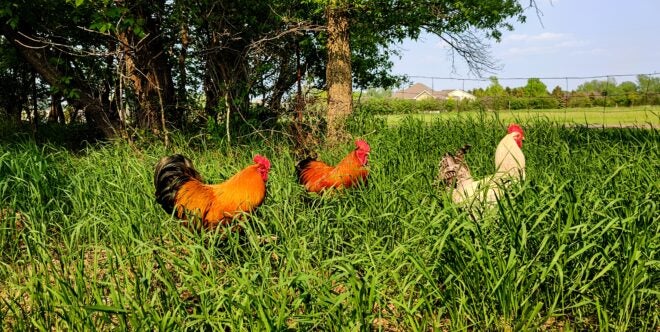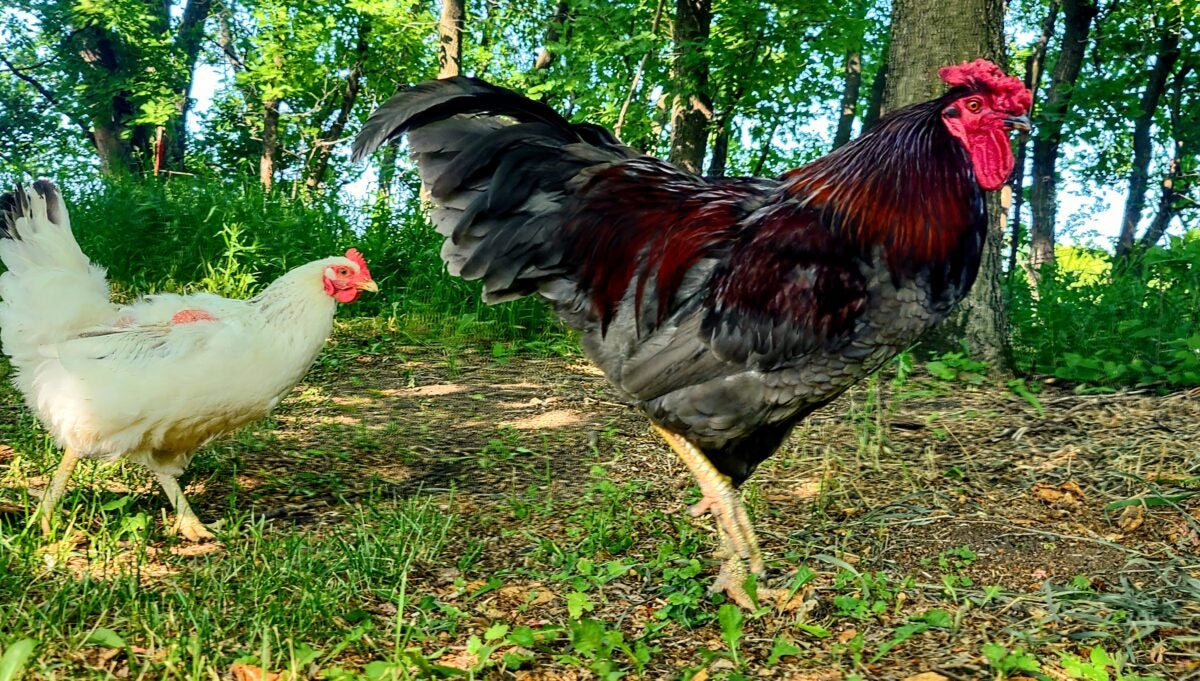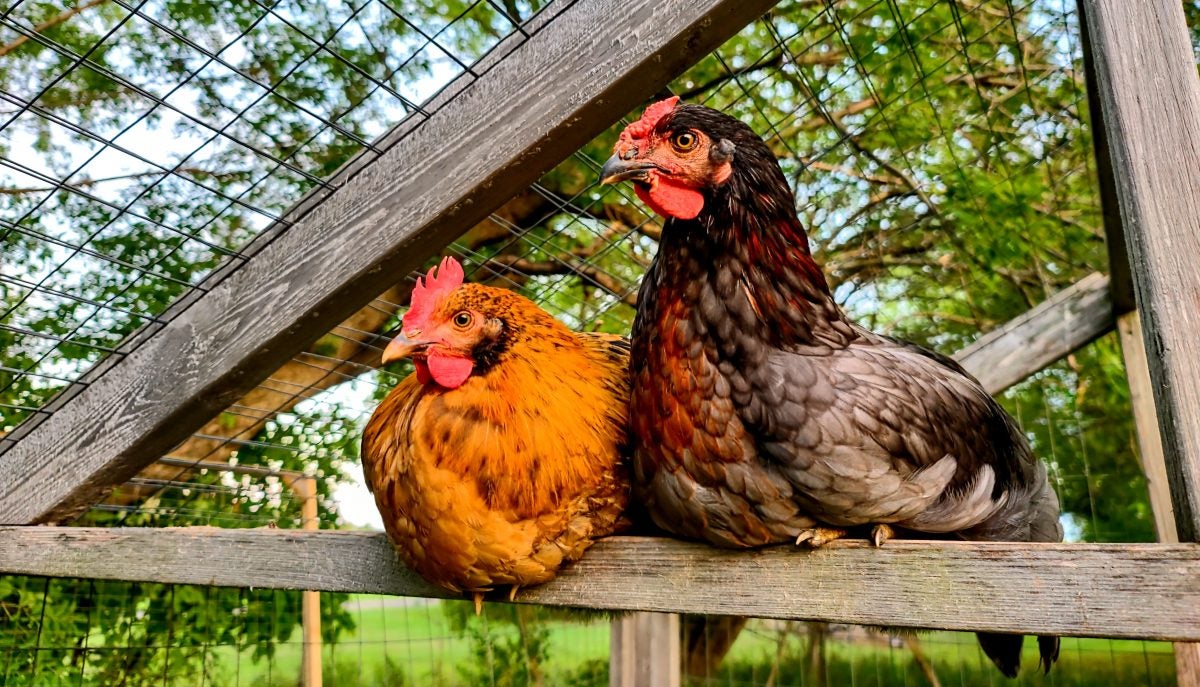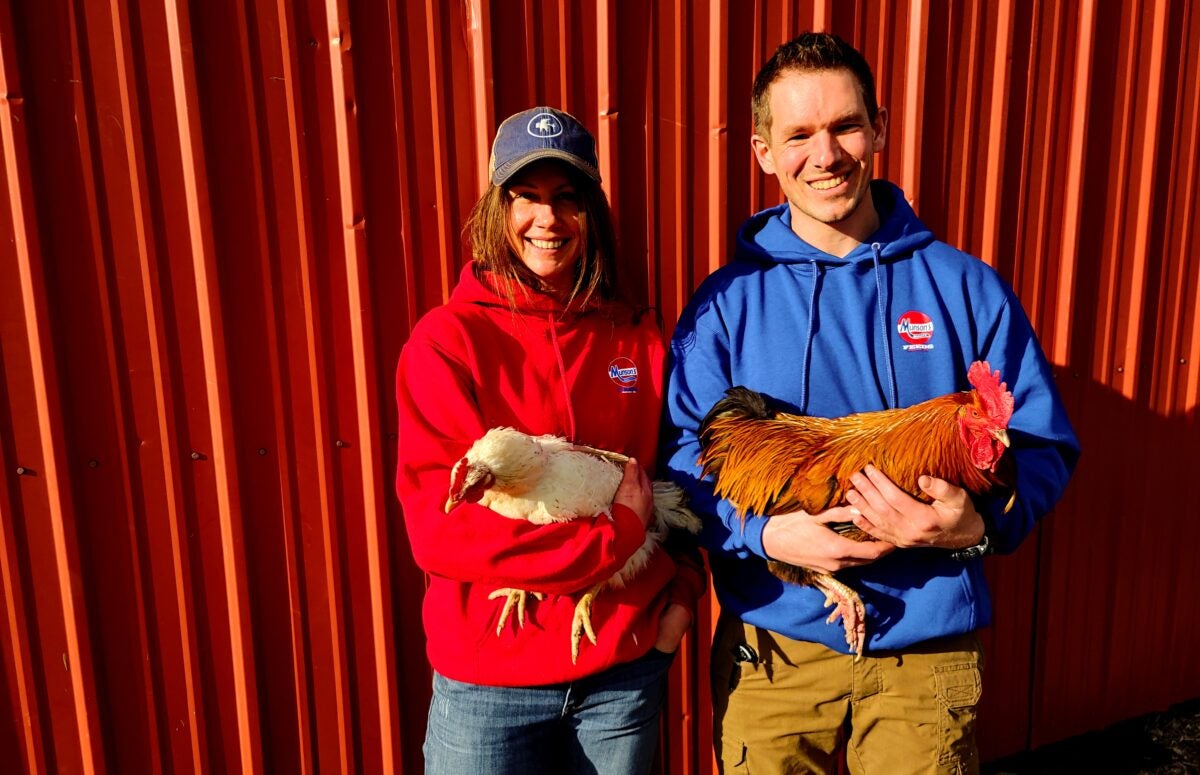Home on the Range #042 – Pros and Cons of Free-Range Chickens
Adam Scepaniak 06.16.23

We have discussed in previous iterations of “Home on the Range” about keeping your very own egg-laying chickens. Without creating a political discussion, the world has gone pretty Looney Tunes lately and the prices of all of our groceries have skyrocketed. So, now more than ever it is becoming wise to have egg-laying chickens so you don’t have to buy eggs in the store as well as “broilers” – chickens specifically bred and kept for meat production. If you do decide to get chickens one of the first conversations people entertain is to either free-range their chickens – part of the time or all of the time – or keep them in a chicken coop at all times. Sometimes where you live will dictate your answer to that question. Other times, you might have the freedom of choice. So, which is better? Let’s dive in and look at the pros and cons of having free-range chickens!
“Home on the Range” Series Coverage on AllOutdoor
- Home on the Range #041 – Cooking Pheasant Back Mushrooms
- Home on the Range #040 – Pheasant Back Mushrooms (Dryad’s Saddle)
- Home on the Range #039 – Turkey Slate Call Competition with a Neighbor
- Home on the Range #038 – Turkey Hunting to Supplement your Freezer
- Home on the Range #037: [NSFW] Dangerous Livestock – Cautionary Tale
Welcome to our reoccurring series of “Home on the Range.” Here, we would like to share all of our experiences for those who may be homesteading, living off the land, hunting, farming, ranching, and truly investing in nature and the great outdoors. The ability to provide for yourself and your family can be tremendously rewarding and simultaneously difficult at times. So, in “Home on the Range” we want to share our different exploits so you can learn and hopefully we can receive your feedback along the way as well.
Pros and Cons of Free-Range Chickens
Chickens, in general, have been a popular topic for “Home on the Range” because they can be such a valuable resource if you are looking at homesteading, ranching, farming, or something in between. In the past we have talked about our favorite breeds for egg-laying (Delaware and Orpington) as well as the “5 Bare Necessities of Raising Chickens.” All in all, it is easy to get into the game of raising chickens, but let’s get back to our original question of whether you should have free-range chickens or not?
Pros of Free-Range Chickens
When it comes to the positive aspects of free-range chickens there are quite a few. The most important that I always preach is that we want to be good stewards of the animals that we keep. So, if your property and where you live allows an opportunity for them to be free-range chickens, I firmly believe you should do so. Not only for the pros of that lifestyle listed below, but your birds will be significantly happier for it.
- Require Less Feed – When your birds are free-range they are going to find plants, bugs, and all manner of things to eat. So, you have a much lower cost/expense in feeding your chickens.
- Need Less Grit – A lot of people have to go out of their way to buy sand or grit; a necessary component of a chickens diet. If you let your birds run free, they will naturally get everything that they need.
- Insect & Pest Control – This can be a double-edged positive sword for you. Chickens will eat ants, woodticks, and other pesky bugs you likely don’t want on or around you. Moreover, they will even attack and eat mice, snakes, and other small animals. So, letting your chickens run can allow them to be your own at-home pest control.
- More Active, Healthy, Happy – We already mentioned this, but an active bird is healthier and happier bird. This can translate to friendlier chickens, more eggs, and more sociable birds (better around humans).
- Smaller Coop Necessary – If free-range chickens are in the scope of your hobby farm, then you likely won’t need as large of a chicken-run and coop. With them spending most of their hours outside, the coop basically becomes their sleeping quarters. It no longer needs to be big.
Cons of Free-Range Chickens
With everything in life there is a give-and-take. So, while there are many positive attributes to having free-range chickens there are inherently risks and negatives as well. This isn’t an all-inclusive list, but some things to definitely think about.
- Predators – One of the biggest risks to having your chickens free-range is losing them to predators, and there can be a lot: wolves, coyotes, foxes, neighbor dogs, raccoons, stray cats, your dogs/pets, run over by vehicles, and many other dangers.
- Where are my Eggs? – Some chickens are good about habitually laying their eggs inside your coop once that routine has been established. Other chickens though will make you engage in a daily maddening game of: “Where did I feel like randomly laying an egg today?”
- Damaging your Garden – Just like you enjoy the delicious food that yields from your garden so will your chickens. If you don’t have a fence put up to keep whitetail deer, feral hogs, and rabbits out, then your chickens may be touring your garden and eating it before you harvest.
- Poop…It’s Everywhere! – Chicken poop might pale in comparison to dog poop, but chickens poop a lot. So, if you have a small property you are free-ranging on, it could become an annoyance.
- Eating Things Detrimental to Them – A lot of people think of mouse/rat poison, but something worse could be grass and crops with chemicals on them. Do you use chemicals to kill weeds on your property? Does your neighbor? This could kill your chickens or taint the eggs/meat you are getting from your chickens. Most of us are raising our own fowl for the more nutritious and holistic aspect of it, but if they are eating chemically tainted grasses and foods, our mission of health is tainted as well.
So, if you have chickens, we hope you have the opportunity to let them be free (free-range chickens to be exact), but even with space, it might not be for everyone. Even with space, you shouldn’t disrespectfully and errantly need to kill all of the predators on your property (the needs of your tame chickens shouldn’t outweigh those of all wild animals around you). This is all simply food for thought. Free-range chickens are always better, but it needs to fit your lifestyle of taking caring of them, the land you have available, and weighing the pros and cons for your specific situation. As always, let us know all of your thoughts in the Comments below! We always appreciate your feedback.


